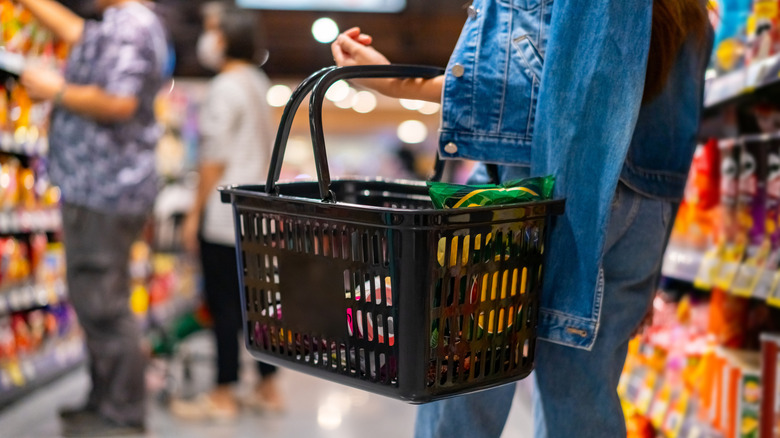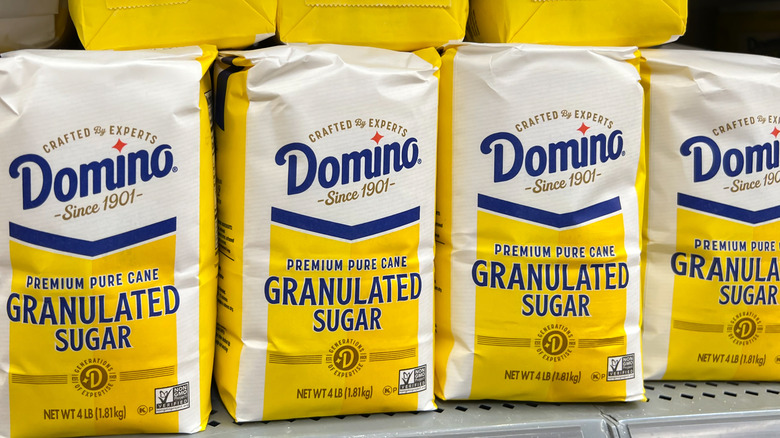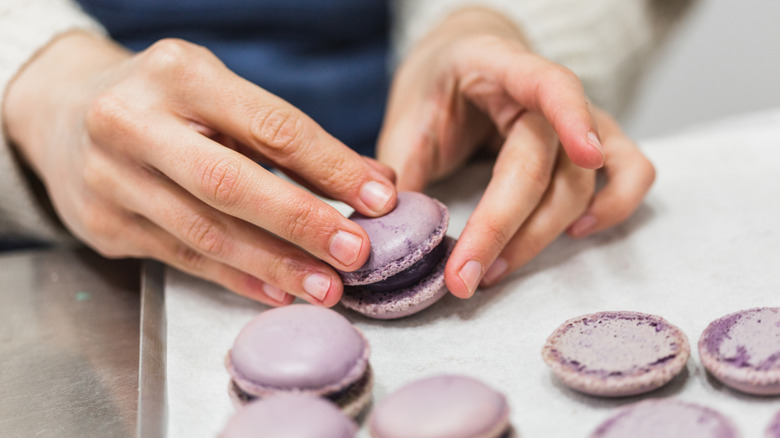Is There Really A Difference Between Brand Name Sugar And Budget Private Labels?
I grew up in a household of budget shoppers. It wasn't until I moved out and started making my own money that I started splurging on name brand products in the grocery store. At first, it was just a way to flex my newfound financial independence. But I quickly learned — to my horror — that often, name brands really are better. I'd opened Pandora's box. Now, even when I'm trying to be budget-conscious, it's hard to go back. But you don't always need the best of the best. Sometimes, store brands work just fine — especially if the product in question is just one ingredient among many. Is it really necessary to shell out for basics, like sugar? In other words, is all sugar the same or does the label really make a difference?
The Takeout spoke to Lucas Navilloz, co-founder of home-delivery service Atome Bakery. According to Navilloz, it's typically fine to buy your sugar from the bottom shelf — but the baker stresses that there are times when you're better off splurging on bags of the brand-name stuff. "For me, most of the time, I'll go with a standard' sugar," Navilloz says. "But if you're baking a tricky dessert, like a glossy meringue, or candied almonds, something that needs super fine crystals, you'll start noticing the little differences." These differences can manifest as lumps, inconsistent texture, or problems with purity. Still, Navilloz says that inexpensive, private label sugar is typically fine. "It's not a big deal unless you're chasing that ultra-precise texture."
What are the benefits of brand name sugar?
One major problem with store brands? A lack of consistency between batches. "Store brands might surprise you with how varied they can be," says Navilloz. For bakeries, this can translate into inconsistent results.
But what's the big deal? Store brand sugar is processed in the same facilities as the bigger brands, right? Sometimes, yes — but that doesn't necessarily mean you're getting the same product. "I wouldn't be surprised if they were made in the same facilities, but not always held to the same consistency standards," says Navilloz. "My opinion is that ... it's mostly because they're not spending as much on branding, marketing, or sometimes packaging."
You probably won't notice the biggest difference in granulated sugar, but sugar isn't one-size-fits-all. There are dozens of different types, each with specific uses. "Where it starts to get different is for specific sugar types," Navilloz explains. Since Atome typically uses granulated sugar, the bakery buys the budget stuff. "We use standard sugar for most of our products as it's not a structurally important ingredient," he says. The one exception? The bakery's Liège waffles, a Belgian specialty. Liège waffles wouldn't be Liège waffles without pearl sugar, a specific kind of coarse, white sugar that doesn't dissolve at high temperatures. "We use a brand pearl sugar," says Navilloz. "Can't find those everywhere."
When should you shell out for sugar?
Liège waffles aside, when should you use brand name sugar? "If you're making cookies on a rainy Sunday morning, go with the cheaper bag, no one will know. But if you're getting all technical, like French macarons ... the brand name stuff can give you more predictable results."
Why would brand name sugar make a difference in macarons? The cookies work best with sugar that dissolves easily into the meringue — otherwise, it'll affect the texture. Navilloz recommends higher-quality sugar for candied confections like sugar-coated almonds. "When you're relying on sugar to behave a certain way, dissolve fast, or have a specific texture, you want something that plays nice," he explains.
For recipes that call for powdered sugar, you might want to opt for organic. Powdered sugar is typically made with corn starch, which has a chalky taste. But organic cornstarch is pricey, so budget brands opt for tapioca starch instead. Many bakers prefer the cleaner taste of tapioca, but it's not ideal for dusting or decor. Of course, flavor isn't the only reason to buy organic sugar.
Ultimately, use what you can afford — as long as you use the right kind of sugar for your baking project. Even if sugar plays a starring role, a cheaper brand won't make or break most baking projects. "You can make it work either way," says Navilloz. "But one's definitely smoother."


